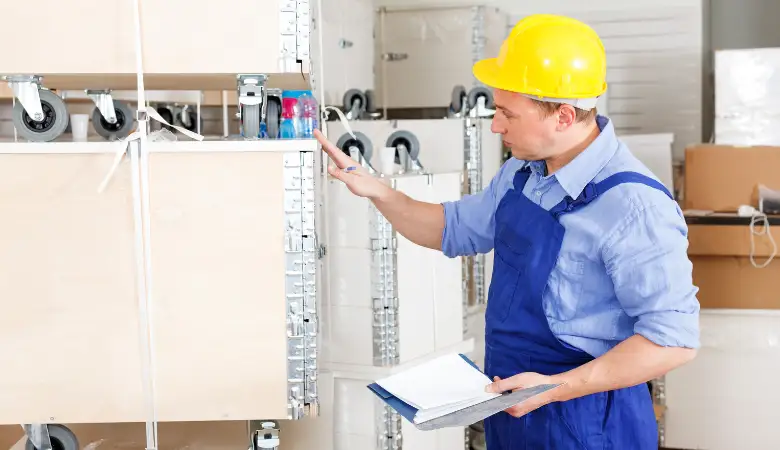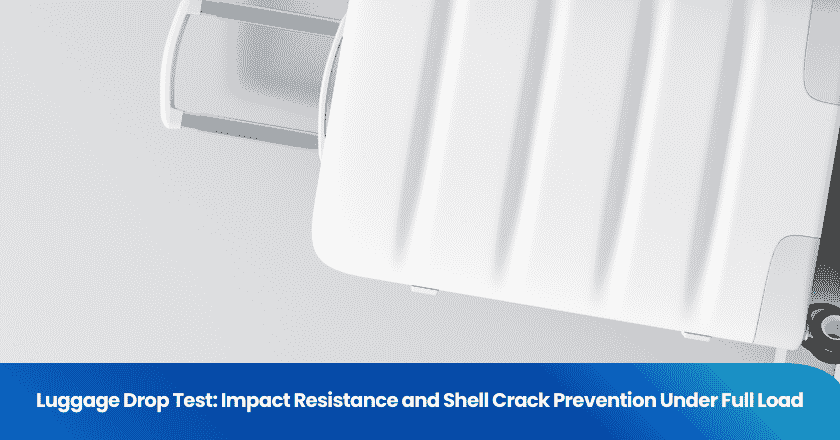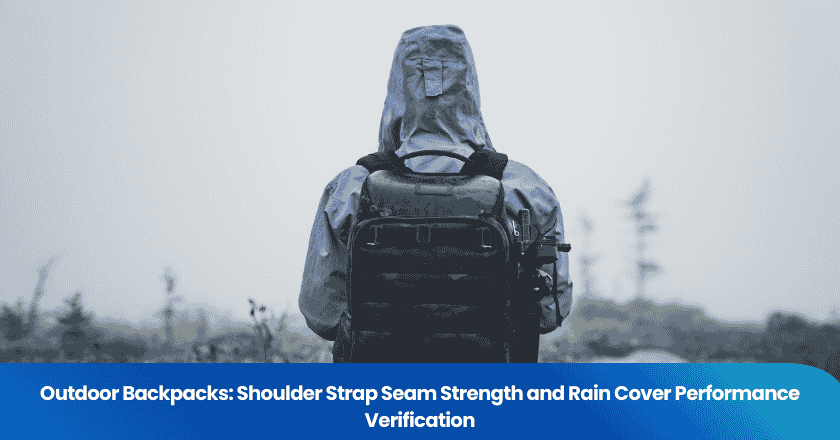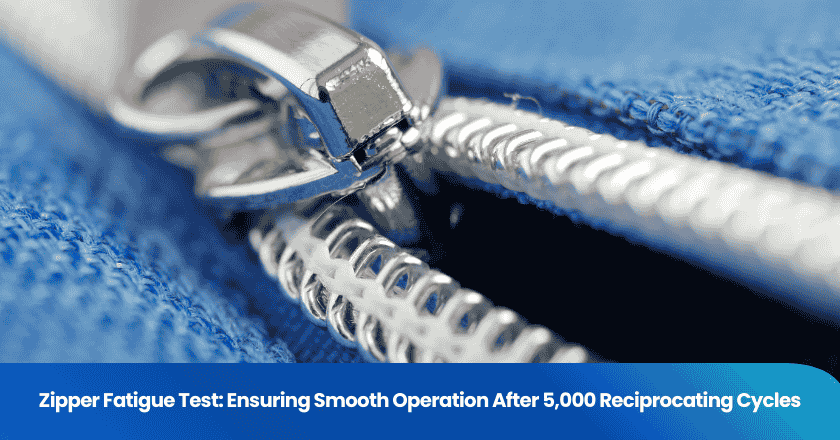
You rely on quality and safety when purchasing products or services.3rd party inspectionagencies play a vital role in ensuring that trust. These independent organizations evaluate products or services against established standards. They verify compliance with regulations, confirm safety measures, and assess overall quality. By acting as neutral evaluators, they provide you with confidence in what you buy, whether it's a consumer good or an industrial component. Their unbiased assessments help prevent issues before they reach you.
The Role of 3rd Party Inspection Agencies
Ensuring Compliance with Standards and Regulations
You rely on products that meet specific manufacturing standards. A third party inspection agency ensures these standards are followed. They examine products, materials, and processes to confirm compliance with industry regulations. Their inspections cover everything from safety protocols to environmental guidelines.
These agencies act as watchdogs for quality control. They verify that your products align with legal requirements and international benchmarks. For example, if you manufacture goods for export, a third-party inspection ensures they meet the destination country’s standards. This process reduces the risk of penalties or recalls.
Tip: Partnering with a third party inspection agency can help you avoid costly mistakes and ensure your products meet global expectations.
Acting as Independent Quality Evaluators
A third-party inspection agency provides unbiased evaluations. They assess your products without influence from internal teams or external stakeholders. This neutrality ensures accurate results.
Their role as independent evaluators strengthens trust in your supply chain. They inspect raw materials, monitor production processes, and test finished goods. Their findings help you identify areas for improvement. For instance, if a product fails a quality test, the agency provides actionable feedback to resolve the issue.
You benefit from their expertise in quality control. Their evaluations ensure your products consistently meet customer expectations.
Reducing Risks in the Supply Chain
Third party inspection minimizes risks in your supply chain. They identify defects early, preventing faulty products from reaching the market. This proactive approach saves you time and money.
Their inspections also protect your reputation. A defective product can harm customer trust. By catching issues during production, third-party inspection agencies help you maintain high standards.
Note: Regular inspections reduce the likelihood of supply chain disruptions. They ensure smooth operations and reliable product delivery.
Third-party inspection agencies also safeguard your business against compliance risks. They verify that your processes adhere to manufacturing standards and legal requirements. This reduces the chance of fines or legal disputes.
Types of Third-Party Inspection Services
Pre-Production Inspections
Pre-production inspections focus on the materials and components used in manufacturing. These inspections ensure that everything meets your specifications before production begins. Inspectors evaluate raw materials, review technical documents, and verify that suppliers understand your requirements.
You can avoid costly mistakes by identifying issues early. For example, if a material does not meet quality standards, you can address the problem before it affects the entire production process. This step ensures that your products start with a solid foundation.
Tip: Pre-production inspections are especially useful when working with new suppliers or launching a new product.
During Production Inspections
During production inspections occur while manufacturing is underway. Inspectors visit the factory to check the production process and ensure it aligns with your quality standards. They examine semi-finished products, monitor assembly lines, and verify that workers follow proper procedures.
This type of inspection helps you catch defects before production is complete. For instance, if a machine is not calibrated correctly, inspectors can alert you to fix the issue immediately. This proactive approach reduces waste and ensures consistent quality.
You benefit from real-time feedback during production. It allows you to make adjustments and maintain control over the manufacturing process.
Pre-Shipment Inspections
Pre-shipment inspections take place after production is complete but before products leave the factory. Inspectors assess the finished goods to confirm they meet your specifications. They check for defects, verify quantities, and ensure proper packaging.
This step is critical for maintaining customer satisfaction. You can avoid shipping defective products by identifying issues before they reach your customers. For example, if inspectors find damaged items, you can replace them before shipment.
Pre-shipment inspections also protect your reputation. Delivering high-quality products builds trust with your customers and strengthens your brand.
Note: Pre-shipment inspections are a key part of quality inspection services. They help you ensure that your products meet expectations before they reach the market.
Container Loading Inspections
Container loading inspections ensure your products are safely and correctly loaded for shipment. Inspectors monitor the loading process to verify that goods are handled properly and packed securely. They check for damage, confirm quantities, and ensure that packaging meets your specifications.
This inspection step protects your products during transit. Improper loading can lead to damaged goods or shipment delays. Inspectors help you avoid these issues by ensuring that containers are packed efficiently and meet transportation standards.
You benefit from their attention to detail. Inspectors confirm that the correct items are loaded and that they match your order. They also verify that containers are sealed properly to prevent tampering during transit.
Tip: Container loading inspections are especially valuable for international shipments. They ensure your products arrive safely and maintain their quality throughout the journey.
Factory Audits and Social Compliance Checks
Factory audits evaluate the operational capabilities and ethical practices of your suppliers. Inspectors assess the factory’s production capacity, quality control systems, and adherence to industry standards. This process helps you determine whether a supplier can meet your requirements.
Social compliance checks focus on ethical practices within the factory. Inspectors verify that workers are treated fairly and that labor laws are followed. They check for issues like unsafe working conditions, child labor, or excessive working hours.
These audits and checks protect your brand reputation. Partnering with ethical suppliers demonstrates your commitment to responsible business practices. It also ensures that your products are manufactured under safe and fair conditions.
You gain valuable insights into your supply chain. Factory audits highlight areas for improvement, such as outdated equipment or inefficient processes. Social compliance checks help you identify suppliers who align with your values.
Note: Regular audits and compliance checks build trust with your customers and stakeholders. They show your dedication to quality and ethical standards.
Benefits of Third-Party Inspection
Improved Product Quality and Consistency
You want your products to meet high standards every time. A third party inspection agency helps you achieve this by identifying inconsistencies and defects during production. Inspectors evaluate raw materials, monitor processes, and test finished goods to ensure they meet manufacturing standards.
Their expertise in quality control ensures your products maintain consistent quality. For example, if a batch of raw materials fails to meet specifications, inspectors alert you immediately. This allows you to address the issue before production continues.
By partnering with a third-party inspection agency, you reduce the risk of delivering substandard products. Their evaluations help you maintain a reputation for reliability and excellence.
Tip: Regular inspections improve product consistency, which builds trust with your customers and strengthens your brand.
Enhanced Customer Satisfaction
Delivering high-quality products keeps your customers happy. Third party inspection ensures your goods meet expectations before they reach the market. Inspectors verify product specifications, check for defects, and confirm proper packaging.
When customers receive products that meet their needs, they feel satisfied. This satisfaction leads to repeat business and positive reviews. For instance, if inspectors catch a packaging error, you can fix it before shipping. This proactive approach prevents customer complaints.
Third-party inspection also demonstrates your commitment to quality. Customers appreciate businesses that prioritize their satisfaction. By using quality inspection services, you show that you care about delivering the best possible products.
Note: Happy customers are more likely to recommend your products to others, boosting your reputation and sales.
Mitigation of Risks and Defects
Defective products can harm your business. Third party inspection minimizes these risks by identifying issues early. Inspectors catch defects during production, reducing the chance of faulty goods reaching the market.
Their inspections protect your supply chain from disruptions. For example, if a machine malfunctions, inspectors notify you immediately. This allows you to resolve the problem before it affects production.
Third-party inspection also ensures compliance with manufacturing standards. Inspectors verify that your processes meet legal and industry requirements. This reduces the risk of fines, recalls, or legal disputes.
Tip: Early detection of defects saves you time and money. It prevents costly mistakes and ensures smooth operations.
Compliance with Industry Standards
You need to meet industry standards to ensure your products are accepted in the market. Third party inspection agencies help you achieve this by verifying that your processes and products align with these standards. They evaluate every stage of production, from raw materials to finished goods, ensuring compliance with legal and regulatory requirements.
These inspections are especially important if you operate in industries with strict guidelines, such as electronics, pharmaceuticals, or food production. For example, inspectors might check whether your manufacturing processes adhere to safety protocols or environmental regulations. Their expertise ensures your products meet both local and international standards.
By working with a third party inspection agency, you demonstrate your commitment to quality control and regulatory compliance. This not only protects your business from penalties but also builds trust with your customers and stakeholders. When your products consistently meet industry standards, you enhance your reputation and gain a competitive edge.
Tip: Regular inspections help you stay updated with changing regulations, ensuring your business remains compliant at all times.
Cost Savings Through Early Detection
Identifying issues early in the production process saves you money. Third party inspection agencies specialize in detecting defects before they escalate into costly problems. For instance, they might catch a flaw in raw materials during pre-production inspections, allowing you to address it before manufacturing begins.
Early detection reduces waste and prevents expensive recalls. If a defect is found after production, the cost of rework or replacement can be significant. By catching issues early, you avoid these expenses and maintain smooth operations.
Third party inspection also minimizes the risk of customer complaints or returns. Delivering high-quality products the first time reduces the likelihood of dissatisfied customers. This proactive approach not only saves money but also protects your brand reputation.
Note: Investing in early inspections is a cost-effective strategy that ensures long-term savings and operational efficiency.
Selecting the Right Third Party Inspection Agency
Evaluating Experience and Expertise
Choosing the right third party inspection agency starts with evaluating their experience and expertise. You need an agency that understands your industry and has a proven track record. Look for inspectors who specialize in your product category or manufacturing processes. Their familiarity with your sector ensures accurate evaluations and actionable insights.
Ask about their previous projects. Agencies with experience in similar inspections can anticipate challenges and provide solutions. For example, if you manufacture electronics, an agency with expertise in electrical components will know how to test for compliance effectively.
Tip: Request case studies or references to confirm their expertise. This helps you gauge their ability to meet your specific needs.
Checking Certifications and Accreditations
Certifications and accreditations validate the credibility of a third party inspection agency. You should verify whether the agency holds certifications from recognized organizations. These certifications demonstrate their adherence to international standards and best practices.
Accreditations also ensure the agency’s inspectors are qualified. For instance, inspectors certified in ISO standards can evaluate your products against global benchmarks. This guarantees reliable and consistent inspections.
Create a checklist of required certifications based on your industry. For example, if you operate in food production, look for agencies accredited in HACCP or FDA standards.
Note: Partnering with a certified agency enhances your reputation and ensures compliance with industry regulations.
Assessing Reporting Quality
Inspection reports provide critical insights into your product quality. You need a third party inspection agency that delivers clear, detailed, and actionable reports. These reports should highlight defects, compliance issues, and recommendations for improvement.
Review sample reports before hiring an agency. Look for reports that include photos, measurements, and concise summaries. This ensures you can easily understand the findings and take corrective actions.
Tip: Choose an agency that offers customizable reports. Tailored reporting formats help you focus on the data most relevant to your business.
High-quality reports streamline your decision-making process. They allow you to address issues promptly and maintain control over your supply chain.
Considering Geographic Coverage
When selecting a third party inspection agency, geographic coverage matters. You need an agency that operates in the regions where your suppliers and factories are located. Their presence ensures timely inspections and reduces logistical challenges.
Start by evaluating the agency’s network. Check if they have inspectors stationed near your production sites. Local inspectors can respond quickly to your needs and provide insights into regional compliance standards. For example, if your factory is in Asia, an agency with a strong presence in that region can offer faster service and better understanding of local regulations.
Consider the agency’s ability to handle international operations. If your supply chain spans multiple countries, choose an agency with global coverage. This ensures consistent quality checks across all locations. Agencies with international expertise can also help you navigate varying regulatory requirements.
Tip: Ask about the agency’s experience in your target regions. Their familiarity with local laws and customs can streamline the inspection process.
Reviewing Client Feedback
Client feedback provides valuable insights into the reliability of a third party inspection agency. Reviews and testimonials reveal how well the agency performs and whether they meet client expectations.
Begin by researching online reviews. Look for feedback on the agency’s responsiveness, accuracy, and professionalism. Positive reviews indicate a trustworthy agency, while negative ones highlight potential issues. For example, if clients praise the agency’s detailed reports, you can expect high-quality evaluations.
Request references from the agency. Speaking directly with past clients gives you a clearer picture of their strengths and weaknesses. Ask about their experience with the agency’s inspectors, reporting quality, and adherence to deadlines.
Note: Consistent positive feedback signals a dependable agency. It shows they prioritize client satisfaction and deliver reliable inspection services.
TradeAider: A Visionary Inspection & QA Service Provider
As a reputable and trusted inspection and QA service provider, TradeAider is driven by visionary goals and missions. Our core strengths lie in the founder's dedication and extensive experience in global trade and manufacturing, combined with our vast network of over 80,000 quality control specialists worldwide. Throughout the production cycle, we are supported by the innovative TradeAider App, which ensures successful quality assurance for any service orders placed by our clients. We take pride in being part of Amazon's SPN for quality control, alongside industry leaders.
What Sets TradeAider Apart
TradeAider stands out distinctly from other traditional inspection firms. We offer more than just lower costs; we are also far more efficient and transparent, leveraging cutting-edge digital tools. Our esteemed clients can effortlessly monitor the full inspection process in real-time via the TradeAider Web App. Moreover, we provide a Free Sticker-Attaching Service to ensure that clients receive only quality-compliant products. And we have a safeguard in place, along with a reliable "refund commitment," that instills trust from the very start.
You can also check industry forums or professional networks for recommendations. Insights from peers in your field can help you make an informed decision.
Understanding the Third-Party Inspection Process
Initial Consultation and Requirement Analysis
The third-party inspection process begins with an initial consultation. During this stage, you discuss your specific needs and expectations with the inspection agency. This step ensures that both parties understand the scope of the inspection. You provide details about your product, production timeline, and quality standards.
Inspectors analyze your requirements to create a tailored inspection plan. They identify key checkpoints, such as pre-production or final inspections, based on your goals. For example, if you want to focus on reducing defects, they may recommend a production inspection during manufacturing.
Tip: Clear communication during this phase helps the agency align their services with your objectives.
On-Site Inspection and Data Collection
Once the plan is finalized, inspectors visit your production site to conduct the inspection. They examine materials, processes, and finished goods to ensure compliance with your specifications. Inspectors use tools like checklists and testing equipment to gather accurate data.
During the on-site inspection, they document their findings in real time. For instance, they may note defects in raw materials or improper assembly techniques. This hands-on approach allows them to identify issues early and recommend corrective actions.
You benefit from their expertise in quality control. Their observations ensure that your products meet industry standards and customer expectations.
Note: On-site inspections are crucial for maintaining consistent quality throughout the production process.
Reporting and Feedback
After completing the inspection, the agency compiles their findings into a detailed report. This document highlights any defects, compliance issues, or areas for improvement. You receive actionable feedback to address these concerns effectively.
The report often includes photos, measurements, and summaries to make the information easy to understand. For example, if inspectors find packaging defects, the report will outline the problem and suggest solutions.
You can use this feedback to improve your processes and prevent future issues. Regular reporting also helps you track progress and maintain high-quality standards over time.
Tip: Review inspection reports thoroughly to identify trends and make informed decisions about your supply chain.
Follow-Up Actions and Improvements
After receiving the inspection report, your next step involves taking follow-up actions to address any identified issues. This stage is crucial for maintaining product quality and ensuring continuous improvement in your operations.
Start by reviewing the report thoroughly. Focus on the highlighted defects, compliance gaps, or areas needing attention. Prioritize the most critical issues that could impact product safety or customer satisfaction. For example, if the report identifies defective raw materials, you should immediately contact your supplier to resolve the problem.
Next, implement corrective actions based on the recommendations provided. These actions might include adjusting production processes, retraining staff, or replacing faulty equipment. For instance, if inspectors find inconsistencies in assembly techniques, you can organize a training session to improve worker skills.
Create a plan to monitor the effectiveness of these changes. Regularly evaluate whether the implemented solutions are achieving the desired results. This ensures that similar issues do not recur in future production cycles. You can also schedule follow-up inspections to verify that the improvements meet the required standards.
Tip: Use the inspection process as a learning opportunity. Analyze recurring issues to identify patterns and root causes. This proactive approach helps you refine your quality control systems over time.
Finally, document all corrective actions and improvements. Keeping detailed records allows you to track progress and demonstrate your commitment to quality. These records also serve as valuable references for future inspections, helping you streamline the process and maintain high standards.
3rd party inspection agencies play a critical role in maintaining product quality, compliance, and safety. Their expertise helps you identify risks early and improve customer satisfaction. By ensuring your products meet industry standards, they protect your reputation and streamline the inspection process. Choosing the right third-party inspection agency builds trust with your stakeholders and strengthens your business operations. Their services not only reduce risks but also enhance the consistency of your supply chain.
Tip: Partnering with reliable 3rd party inspection agencies ensures long-term success and peace of mind.
FAQ
What is a third-party inspection agency?
A third-party inspection agency is an independent organization that evaluates products or services. It ensures they meet quality, safety, and compliance standards. These agencies act as neutral evaluators, providing unbiased assessments to help you maintain high standards in your supply chain.
Why should you use third-party inspection services?
Third-party inspections help you identify defects early, ensure compliance with regulations, and improve product quality. They reduce risks in your supply chain and enhance customer satisfaction. By using these services, you protect your reputation and avoid costly mistakes.
How do third-party inspections differ from internal inspections?
Internal inspections are conducted by your team, while third-party inspections involve independent experts. Third-party agencies provide unbiased evaluations, ensuring accurate results. Their neutrality strengthens trust in your supply chain and helps you meet industry standards without internal influence.
Are third-party inspections necessary for all industries?
Yes, industries like electronics, pharmaceuticals, and food production benefit greatly from third-party inspections. These sectors often have strict regulations. Inspections ensure compliance, improve product quality, and protect your business from penalties or recalls.
How do you choose the right third-party inspection agency?
Evaluate their experience, certifications, and geographic coverage. Check client feedback and review sample reports. Choose an agency familiar with your industry and capable of meeting your specific needs. Their expertise ensures reliable inspections and actionable insights.
Grow your business with TradeAider Service
Click the button below to directly enter the TradeAider Service System. The simple steps from booking and payment to receiving reports are easy to operate.





